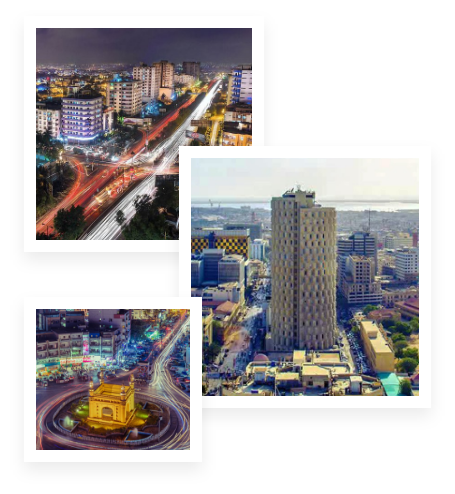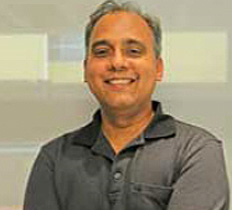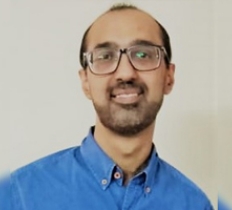Habib University, founded in 2014, is Pakistan’s first liberal arts and sciences, truly student-centered undergraduate focused institution, that is challenging the norms of conventional vocational higher education, creating a transformative change in the country’s educational landscape by reclaiming and reconnecting with context and heritage, integrating disciplinary boundaries, and offering a globally competitive intellectual experience for Pakistani youth.
An Exclusive Session with University of Texas A&M Community
We invite you to learn and inquire how this innovative, locally grounded institution, is creating a unique educational experience for undergraduate students, and already being recognized as a bold, bravest experiment in liberal arts education in the world today!

We invite scholars from the following fields to join us for an online session with our founding faculty and staff of the institution.
-
Electrical Engineering
-
Computer Science
-
Computer Engineering
-
Physics
-
Ecology
-
Mathematics
Science and Engineering
-
Political Science
-
Sociology
-
Anthropology
-
International Studies
-
Economics
Social Science
-
Communication
Art & Design
-
History
-
Philosophy
Humanities
Meet The Team
Learn More About Habib University
Habib University emphasizes an interdisciplinary approach to educate leaders, innovators, and entrepreneurs who can solve the complex, interconnected challenges of contemporary societies and develop novel, indigenous ways to benefit their own communities. The Dhanani School of Science and Engineering and the School of Arts, Humanities and Social Sciences seek to redefine education in Pakistan through programs that blend breadth of knowledge, disciplinary and technical competence, and collaborative, experiential learning. The academic programs foster independent inquiry, creative thought, and hone the skills necessary to effectively develop and communicate pioneering ideas.
-
Habib Core Curriculum: The philosophical foundation of the university, the Habib Core Curriculum, covers the humanities, arts, and natural and social sciences and examines knowledge from a variety of Eastern and Western traditions. The Core Curriculum provides a shared basis for understanding the historical and conceptual underpinnings of the modern era and contextualizing Pakistan’s place in the modern world. The Habib Core design has elements that have been inspired by leading academic institution in the US, and is organized as a series of 10 courses taken under ‘Seven Forms of Thought/Action’. The required core courses are taken by all students regardless of their major, and are spread over the four-year academic experience. The structure of courses in the humanities and social sciences follow an established sequence, as they build the student’s ability to comprehend difficult concepts over time.
- Seven ‘Forms of Thought/Action’: Historical and Social Thought; Philosophical Thought; Formal Reasoning; Language and Expression; Creative Practice; Quantitative Reasoning; Natural Scientific Method & Analysis.
- The Habib Liberal Core Courses: Rhetoric and Communication, Pakistan and Modern South Asia, What is Modernity; Hikma (History of Islamic Thought); Jahan-e-Urdu (The World of Urdu Literature), Programming Fundamentals; Scientific Methods and Inquiry, one course each in creative practice, quantitative reasoning, formal reasoning
-
Academic Programs: Habib University emphasizes an interdisciplinary approach to educate leaders, innovators, and entrepreneurs who can solve the complex, interconnected challenges of contemporary societies and develop novel, indigenous ways to benefit their own communities. The Dhanani School of Science and Engineering and the School of Arts, Humanities and Social Sciences seek to redefine education in Pakistan through programs that blend breadth of knowledge, disciplinary and technical competence, and collaborative, experiential learning. The academic programs foster independent inquiry, creative thought, and hone the skills necessary to effectively develop and communicate pioneering ideas.
- Majors:
Dhanani School of Science & Engineering
Computer Science | Computer Engineering | Electrical Engineering
School of Arts, Humanities and Social Sciences
Social Development and Policy | Communication and Design | Comparative Humanities - Minors: South Asian Music | Physics | Mathematics | Religious Studies | Philosophy | History | Comparative Literature.
Students can also minor in a major program as well, by taking defined minimum courses.
- Majors:
Dhanani School of Science & Engineering

The University is located in Karachi, one of the world’s most diverse and dynamic metropolitan cities in Pakistan. The city is the main financial and economic hub of the country, and a fertile ground to connect with academia, industry and government in Pakistan and serve as a center for research and intellectual activity in the region. The city is a hub for scholars interested in pursuing research and investigation in the larger Asian region. The city provides scholars great opportunity to study social and developmental challenges, and work with students to analyze and create contextual solutions.







